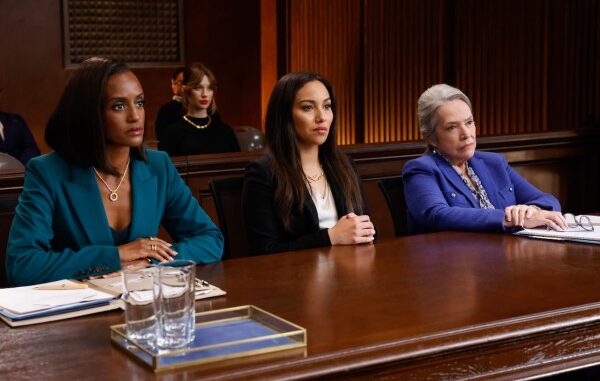
The Digital Whisper and the Voice of Calm: Is Jason Ritter Leaving Matlock Ahead of Season 2? Star Addresses Rumors.
The digital age has gifted us with unprecedented access, a constant stream of information, and, inevitably, a fertile ground for speculation. From the mundane to the momentous, a single whisper online can rapidly escalate into a roaring tempest, particularly when it concerns the beloved figures and narratives that populate our screens. The recent swirling question – "Is Jason Ritter leaving Matlock ahead of Season 2?" – serves as a potent illustrative case study, laying bare the anatomy of modern rumor, the anxieties of fandom, and the crucial role of the star's clarifying voice in a world hungry for certainty.
The genesis of such a rumor often lies in a void of official information, a slight shift in the visible landscape, or even a simple misinterpretation. For a show like the Matlock reboot, featuring the formidable Kathy Bates and her equally compelling on-screen son, Jason Ritter, the stakes are inherently high. Reboots carry the weight of legacy, and the ensemble cast is a delicate ecosystem. Perhaps a cryptic social media post, an unscheduled gap in the production timeline, or even the natural ebb and flow of an actor's other commitments can ignite the spark. Fans, deeply invested in the narrative and its characters, begin to connect dots that aren't there, their imaginations filling the silence with worst-case scenarios. A vague headline might catch fire, morphing from a tentative query into a declarative statement as it races across social platforms, each share amplifying its perceived veracity. "Ritter's schedule is packed!" one might exclaim, while another laments, "It wouldn't be the same without him!" The anxiety builds, a collective gasp echoing through online forums and fan groups.
For the devoted viewer, the rumor of an actor’s departure isn't just a piece of trivia; it’s a potential rupture in their connection to a beloved story. Jason Ritter, known for his earnest charm and undeniable talent, brings a specific warmth and gravitas to his role as the son to Kathy Bates’s titular Matlock. His presence is integral to the show's dynamic, offering both a grounding force and a source of gentle humor. To imagine Matlock without him is to imagine a subtly altered landscape, a different chemistry, a changed future for a series they’ve come to embrace. This emotional investment transforms the rumor into a personal affront, a threat to the comfort and joy the show provides. The digital hum of concern morphs into genuine distress, underscoring the powerful, if often unspoken, parasocial bonds forged between audiences and their on-screen heroes. The frantic scrolling for confirmation, the hopeful search for a counter-narrative, all illustrate the profound need for reassurance in a world where fictional narratives offer genuine solace.
This is where the star steps into the fray, a beacon of clarity in the fog of speculation. Jason Ritter, aware of the digital tempest brewing around his name and the show, chose to address the rumors head-on. This act of direct communication is, in itself, an art form. It requires a delicate balance: addressing the concern without over-dramatizing it, offering reassurance without betraying any genuine production sensitivities, and doing so in a manner that feels authentic to his public persona. Whether through a straightforward tweet, a lighthearted Instagram story, or a direct quote in an entertainment interview, Ritter's words cut through the noise like a well-placed legal argument from Matlock herself. His confirmation that he is, indeed, still part of the show for Season 2, brings a collective sigh of relief, a palpable release of tension from the fanbase.
The aftermath of such a clarification is equally illustrative. The frantic energy dissipates, replaced by celebratory emojis and affirmations of loyalty. The rumor, once a terrifying possibility, becomes a footnote, a testament to the speed with which misinformation can spread and be subsequently quelled. This cycle, from initial whisper to viral storm to official clarification, perfectly encapsulates the dynamic of modern media consumption. It highlights the power of social platforms to both propagate and debunk, and it underscores the enduring importance of human connection – the direct link between a performer and their audience, capable of calming anxieties with a simple, honest statement. Jason Ritter’s address wasn't just about his role; it was a reaffirmation of the show's integrity and a testament to the respect he holds for the audience's investment, turning a moment of potential crisis into a reassuring display of transparency. In the volatile world of television and celebrity, such directness is not just good PR; it's an essential act of community building.
